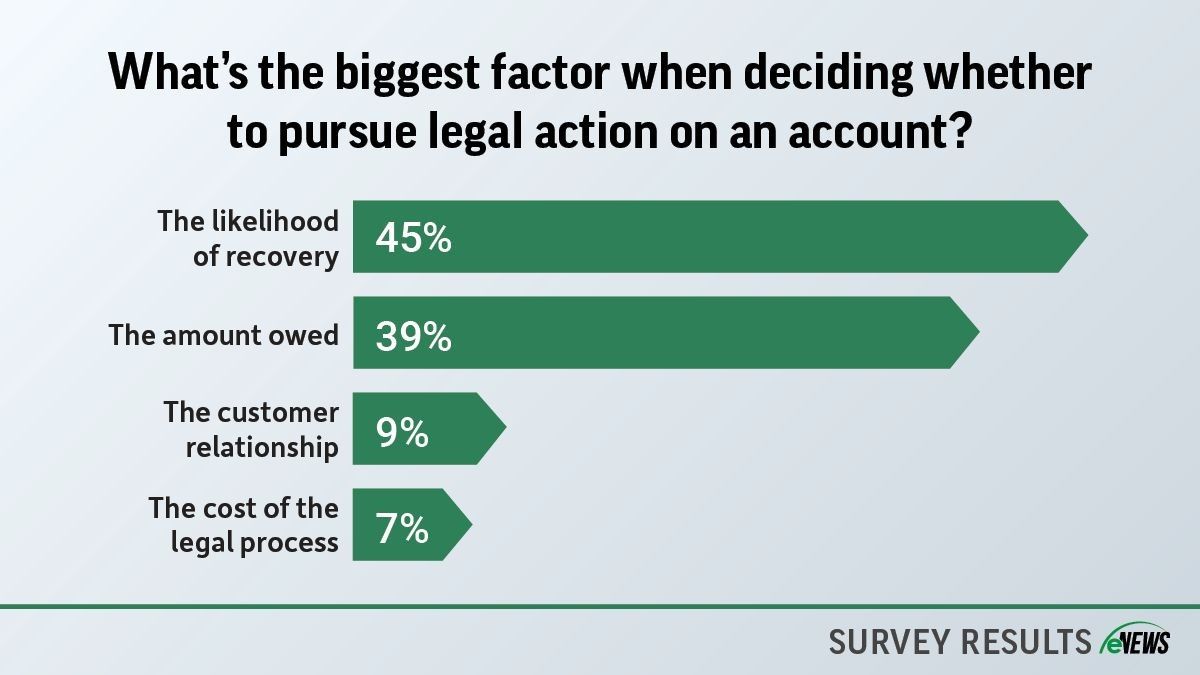Business Practices, eNews
What credit managers need to know about escheatment as states increase audits

Escheatment is the legal process of transferring unclaimed or abandoned property to the state such as bank accounts, uncashed checks, credit balances or other funds that have not been claimed by customers or vendors within a specified period.
Why it matters: In recent years, states across the nation have significantly ramped up their efforts to conduct escheatment audits, placing increased scrutiny on businesses of all sizes.
The process of escheatment has become an enterprise-wide issue as states start to struggle for tax dollars. Though the account or property can be reclaimed if legally claimed, reclamation is subject to certain statutes of limitations—which vary by state, property type and costs associated with each.
The collective value of U.S. unclaimed property being held by individual state governments is upwards of $70 billion, per NAUPA. Most of the capital consists of 401(k) accounts, unpaid wages, insurance payouts, abandoned savings accounts, trust distributions, royalty payments, and countless other types of valuable assets.
Escheatment by state: The top 10 states with the most unclaimed property are New York, California, Maryland, Ohio, Texas, New Jersey, Illinois, Pennsylvania, Massachusetts and Florida.
From a B2B credit standpoint, the exemption from unclaimed property reporting may seem straightforward, but state-specific laws can complicate this process. Some states do not offer the same protections to businesses under unclaimed property laws, as they believe that businesses have the ability to secure their own property interests without state intervention. These states argue that taxpayer dollars should not be used to protect business assets.
In states with B2B exemptions, the government may choose not to interfere in business relationships, allowing companies to resolve their contractual rights independently. Some states offer more holder-friendly B2B exemptions, where property held by businesses is exempt from reporting requirements.
What they’re saying: When a customer overpays on an invoice, it can lead to an unclaimed property obligation as part of escheatment, said Troy Wangen, principal at Baker Tilly Advisory Group, LP (Chicago, IL). “Maybe that customer has become inactive, and you can no longer contact them,” he explained. “So, after a period of time, if you can’t contact them, that credit would need to be reported to the state of the last known address of that customer. If there’s no known address, it becomes an unknown or unidentified payment, which gets reported to your company’s state of incorporation.”
Yes, but: Many companies are familiar with escheatment laws and determining what is reportable, however, speculation can arise around whether customer terms and conditions can replace the actions of reporting responsibilities. In some cases, jargon used in these contracts can open the risk of creating private escheat. Nonetheless, laws and compliance can help mitigate the potential threat of risk.
Annual escheatment compliance is important as states often engage third-party auditors for intense audits both in the sense of time and resources required. If unclaimed property goes unnoticed for years, then all records must be reviewed for those number of years.
“Oftentimes, there may be an overpayment or credit on an account unnoticed for years that is not yet considered unclaimed but rather dormant and that property is potentially escheatable,” said Jennifer Waryjas, Esq., counsel at Jones Day (Chicago, IL). “So, auditors will come in to review those records and ask why you didn’t escheat this dormant property in compliance with state law and do an audit for that entire five or more years of records. It’s incredibly complicated and it’s time-intensive because you’re looking at customer balances, which include multiple write-offs you have to defend based on financial analysis.”
When it comes to the nuances of escheatment, credit managers must take a proactive approach to effectively protect their company from penalties, maintain positive customer relationships and manage proper procedures.
The bigger picture: Here are five key takeaways for credit managers when it comes to best practices in escheatment processes.
1. Understand state regulations.
- Escheatment laws vary by state with different dormancy periods, reporting requirements, and penalties for non-compliance. It is important to stay informed about these specific regulations in all states where doing business.
2. Communicate with customers.
- Sending reminders or notices to customers can help resolve issues before they escalate to escheatment. Effort makes all the difference when trying to contact the owner of the unclaimed property.
3. Identify unclaimed property.
- Review your accounts receivable consistently for uncashed checks, unclaimed credit balances, and other escheatable items. Try to set up a tracking system to keep track of unclaimed property.
4. Execute timely reporting.
- Escheatment requires timely reporting to the state. Credit managers must be aware of all reporting deadlines to ensure all unclaimed property follows compliance with state laws.
5. Know the consequences.
- Non-compliance with escheatment laws can result in significant financial penalties, including hefty fines and interest. Making escheatment a priority can avoid such consequences.
The bottom line: Understanding the complexities of escheatment means credit managers must stay vigilant, adhere to state-specific regulations and carry out best practices to avoid penalties and protect their company’s financial health.





